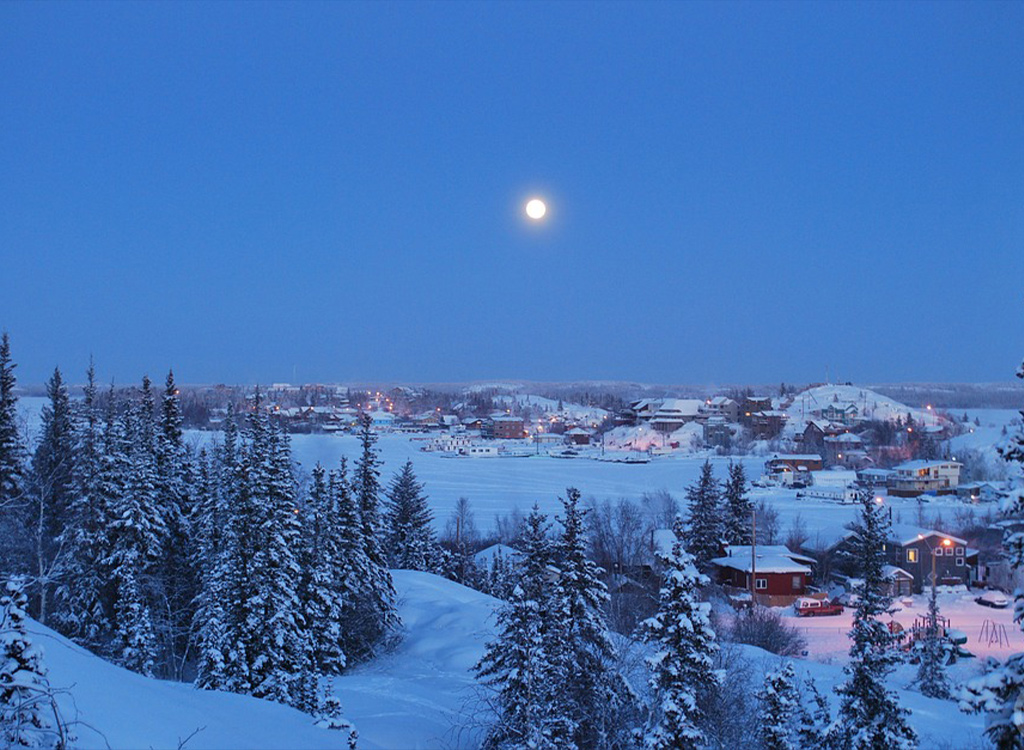Gambling Laws in the Northwest Territories
Hello and welcome to this article reviewing gambling laws in the Northwest Territories. We will discuss the Northwest Territories gambling laws in much detail, so you know exactly what you can and cannot do when you visit this beautiful Canadian province.

What Are Gambling Laws in the Northwest Territories Like
As you might already know, Canadian gambling law differs based on the province and there are some major differences between a couple of regions, so you might want to get acquainted with the various gambling laws before you make your visit.
In particular, today we will discuss the gambling laws in the Northwest Territories. We will look into how federal gambling law shaped the gambling industry there and later how local laws further sculpted it. We hope you find the article to be helpful, enjoy reading!
History of Canadian Gambling Legislation
Canadian gambling has an interesting history and even more interesting development over the centuries. First Nations people have indulged in various gambling games for many years, mainly those involving dice or sticks like Slahal/Lahal, in addition to races like dog races and foot races.
Then, when the European settlers came they also brought with them their own gambling games such as roulette and blackjack among other games. Europeans in their turn also helped popularise horse racing, while also enjoying native gambling games. Today, the best blackjack sites in Canada are also very popular.
Of course, since everyone was enjoying themselves, the government had to step up and change that. The first piece of Canadian gambling law could be found in the Criminal Code of 1892 and that specific law banned any and all forms of gambling in the country.
Yet in the early 1900’s, various religious and charitable organisations were holding monetary games to subsidise good causes, so the Canadian government decided to exclude charitable gaming from the ban such as bingo and raffles. Soon after, after a long debate in the parliament, Canada legalised pari-mutuel betting, or betting on horse races, in 1910.
Considering the sheer amount of illegal gambling that was happening all over the country, Canada began rethinking its attitude towards gaming. The government created a commission to assess the situation and to suggest alternative approaches. The commission realised that banning doesn’t work, which likely informed the decisions taken by the Canadian government in the following decades.
In 1969, Canada made its first big decision in almost six decades by legalising the lottery. Only the next year, Canadian gambling law was liberalised even more. The government bestowed gambling regulation upon individual provinces (the provinces received even more executive powers in the 1980’s), which essentially allowed them to legalise various forms of gambling.
In 1985, Canadian gambling law included sports betting in the legal forms of gambling, albeit only for parlay (multiple) bets. It finally made single bets legal in 2021. The 1980’s also saw the emergence of casinos.
Gambling Laws in the Northwest Territories
Now let’s discuss the gambling laws in the Northwest Territories. First, as you might now, the Northwest Territories, despite their size, are very scarcely populated with around 45,000 people living there. This naturally limits some gaming options, but it’s not the end of the world either.
Gambling laws in the Northwest Territories resemble those of other Canadian provinces. For instance, all forms of gambling are legal according to the Northwest Territories gambling regulations. What this includes is the lottery, charitable gaming like bingo and raffles, scratch cards, sports betting (now with single bets as well), and casino-style gaming.
However, and this is a big however, there are no land-based casinos in the Northwest Territories. This is probably because of the lack of big metropolitan areas, not because the province is opposed to land-based casinos, as is the case in Newfoundland and Labrador.
Overall, the Northwest Territories gambling laws are quite liberal. The main piece of gambling legislation in the Canadian province is the Northwest Territories Lottery Act, which explicitly states that gambling is a permitted activity.
Finally, according to gambling laws in the Northwest Territories, in order to partake in any gambling activity you have to be at least 18 years old.
Online Gambling Laws in the Northwest Territories
There are some good news for fans of online gambling or simply those who don’t want to leave their homes due to the extreme weather – Northwest Territories online gambling is perfectly legal in the Canadian province.
Similar to other Canadian provinces, the Northwest Territories gambling laws create a sort of nationalised gambling model, whereas it is a province that conducts and regulates gambling, meaning that the gambling sites are owned and operated by provincial governments.
The website that can be used by players from the Northwest Territories is the West Canada Lottery Corporation or WLCL.com. It’s owned by five provinces, namely the Northwest Territories, Alberta, Nunavut, Saskatchewan, and Yukon. The available games are the lottery, scratch cards, sports betting and keno.
Unfortunately, the website does not yet feature any casino games, which might, however, change in the future and players will be able to access the best casino sites in Canada. The only way to play casino games like poker and slots is to visit online casinos based outside of Canada, which is a legal activity according to Canadian (federal) gambling law.
Regulators of Gambling in the Northwest Territories
There is currently only one regulator of gambling in the Northwest Territories – the Department of Municipal and Community Affairs. The Department ensures that everyone abides to gambling laws in the Northwest Territories. It also licenses operators of charitable gambling and the lotto, and it also jointly oversees the WLCL.
Common Questions and Answers
Thank you for reading our article on gambling laws in the Northwest Territories. We hope that you know everything about the Northwest Territories gambling laws and how they apply to your favourite types of gaming. Below you can also find the most popular questions concerning this topic, but if you have any others, don’t hesitate to contact us.
1️⃣ Do the gambling laws in the Northwest Territories allow sports betting?
Yes, sports betting is allowed by the Northwest territories gambling laws and per Canadian federal law ever since 1985. However, it wasn't until recently that you could only make parlay bets; but don't worry because Canada legalised single bets in 2021 as well.
2️⃣ What's the legal gambling age by the Northwest Territories gambling law?
The legal gambling age approved by the gambling laws in the Northwest Territories is 18 years. Once you're above the age of 18 you can legally partake in all forms of gambling that are outlined as legal by the gambling laws in the Northwest Territories.
3️⃣ Is Northwest Territories online gambling allowed?
Yes, Northwest Territories online gambling is legal in this Canadian province. There is just one regulated site for online gambling though – WLCL.com, which is jointly owned by the Northwest Territories and four other provinces. The gambling options there are a bit limited, however.
4️⃣ Is casino gaming regulated by the Northwest Territories gambling law?
Unfortunately, there is no casino-style gaming in the Northwest Territories. There are neither land-based casinos nor casino games in the only regulated online operator. As per our summary of NWT gambling laws, we can say they are quite liberal and they don't allow players to visit and play at offshore online casinos, although not illegal.
5️⃣ Who deals with the Northwest Territories gambling regulations?
There is one gambling regulator in the Northwest Territories - the Department of Municipal and Community Affairs. This regulator licenses operators in the Canadian province and ensures that both operators and players abide by gambling laws in the Northwest Territories.
